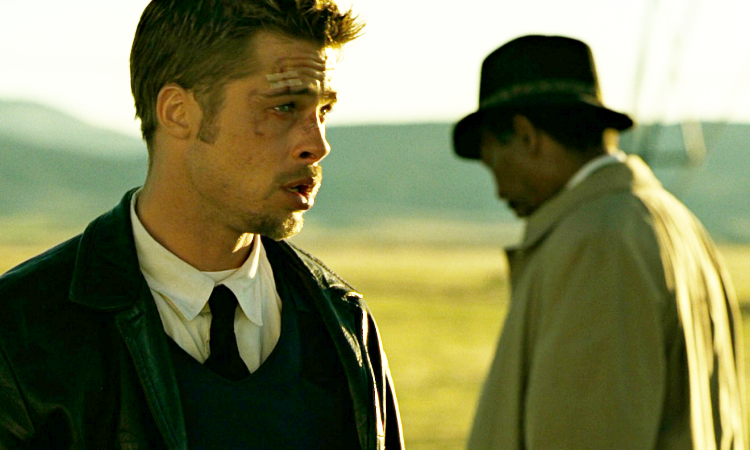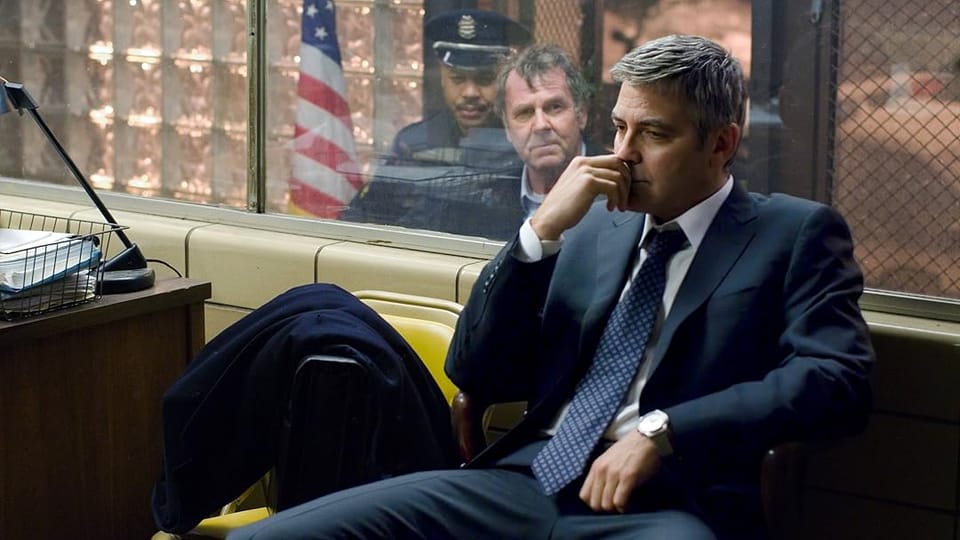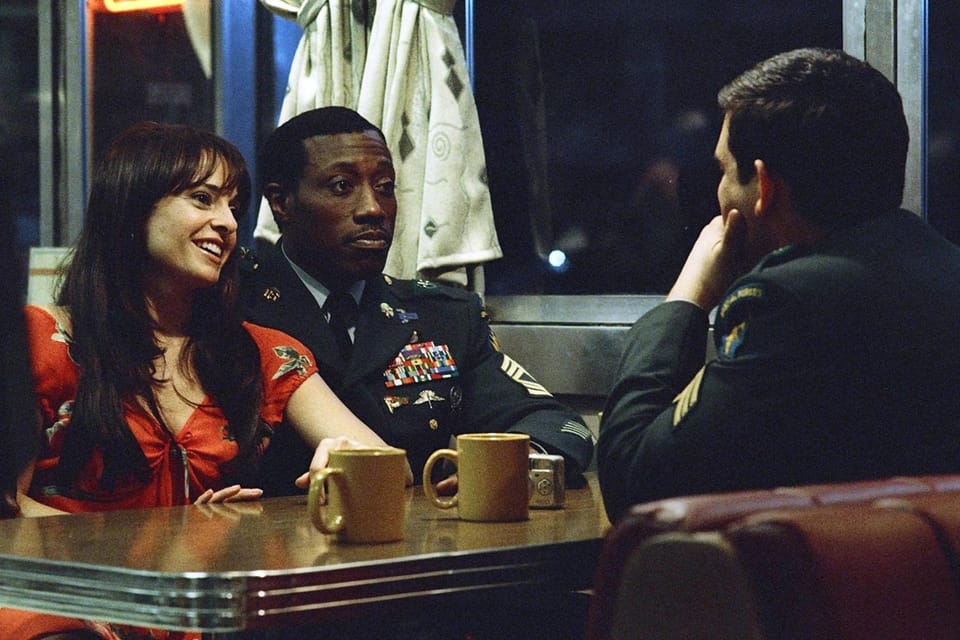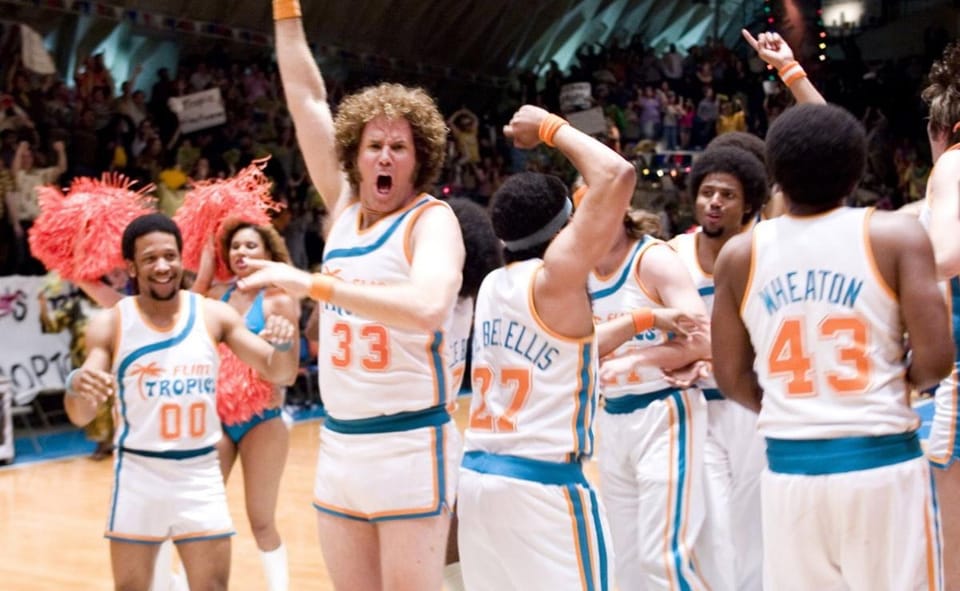It's the trend line in our screenwriting that matters.
No one’s work just gets better and better and better. No one’s.
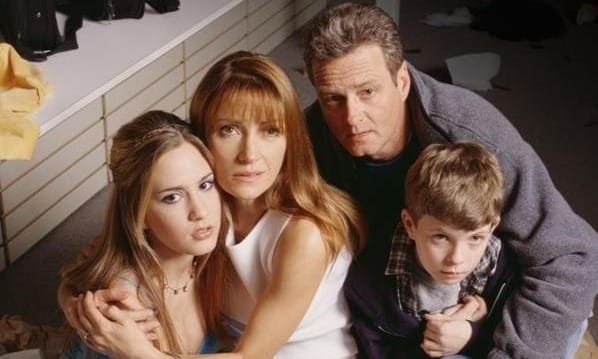
The Story and Plot Weekly Email is published every Tuesday morning. Don't miss another one.
I have been writing professionally for a long time. My career has been filled with ups and downs. Financially, creatively, and especially, my place in the business.
While the levels of this vary, the up-and-down nature is not just the norm; it is the rule.
Even those who have achieved total financial security still ride a roller coaster on the creative side.
No one’s work just gets better and better and better.
No one’s.
And our new projects are always compared to our best.
How many times have you seen a film, or read a book, and thought, “It was good. Not as good as their last, but good.”
My favorite Paul Thomas Anderson film remains BOOGIE NIGHTS, his first film that is truly his.
Billy Wilder, perhaps my greatest hero, seemed to peak nine films before his involuntary retirement.
He had arguably the greatest 20-year run of top-notch pictures from 1942 to 1962. After THE APARTMENT, my favorite of his, he made ONE, TWO, THREE, one of my least favorite!
And these are some of the very best to ever do it!
Things change. Artists try new things. We lose an edge or a point of view we once had. Maybe something new interests us that doesn’t interest the audience.
This isn’t only about careers either. You can see this in singular screenplays as well.
Some scenes are better written than others. How do we connect with one scene so damn well, knock that out of the park, and then fall flat on our face 10 pages later?
Which one is the accident? The great scene?
Or the terrible one?
Remember the mental battle.
This is my constant refrain. I repeat it as often as I can because it is the most likely area that will defeat you.
Some people are naturally resistant to self-defeating attitudes, but most of us are not. I’m not. For me to win this battle, I have to constantly remind myself that there is a battle.
Whenever I get notes, I write down at the top of my paper, “Your biggest enemy is your emotional pain.”
This reminds me to shut my mouth and just listen. It is a lesson I learned after being a pain-in-the-ass the first 10 years of my career.
You are where you are.
I see a career as four major stages.
- The learning stage.
This is where you are learning to get good at this thing. Everyone goes through this phase, yet everyone is embarrassed they’re in it.
- Crossing the chasm.
This is when you are trying to prove to others that you are good at this thing. You are trying to get PAID so you can focus ALL of your professional energy on your work.
- Building a beachhead.
At this stage, you are trying to learn to be a pro. You’re learning the business, how to pitch and win jobs, and how to create and maintain relationships.
- Building a base.
This is maintaining the career. The vast majority of people who entered the business with me 28 years ago are out of it now. Those that are left have either done extremely well financially, or traded doing what they love for financial instability.
In the first three stages, we tend to think the next stage will be easier. In the last stage, we look back at the “good old days” when it was somehow more fun.
Neither one is true.
Every stage is equally grueling and exhilarating.
Enjoy the stage you’re in.
Because that is how you get to the next stage.
I’ve never seen an angry, bitter person maintain momentum. Not ever. Of course, I have seen terrible people succeed. That happens all the time!
But not the angry, bitter ones. Even when they catch a break, they destroy it.
Enjoy where you are. Know its role in your career and embrace that role. This is the same for any job on the planet.
Want to get the next job? Do your current job exceptionally well.
Make the learning curve stage about learning, not getting to the next stage.
This is true for every stage, but it is especially true for the this one.
You are NOT trying to prove your worth here. Fight that temptation.
You are trying to get better. You are trying to GROW. Each step you make should be geared towards that.
Write MANY screenplays.
Do not keep rewriting the same screenplay. Your job is not to sell that script. Your job is to get better.
And you will get significantly better by taking everything you learned from the current one and putting it into a new screenplay that you start from scratch.
I’m not saying don’t rewrite.
I’m saying you take your biggest leaps between scripts, not in the midst of them.
Know where you want to improve.
Go into each new project knowing where you want to improve. Do you want to focus on improving your dialogue? Your scene work? Your structure? Characters?
This isn’t just about the pages you produce. This is also about what you’re thinking about when you’re not writing. Which screenplays are you going to read to help you improve? Which movies will you watch?
When you are sitting around, doing nothing, where will your mental energy go?
Have a plan.
Getting read is not your challenge.
There has never been a better time for a screenwriter to get their screenplay read. There is an entire sub-economy devoted to it.
Nor has the industry stopped looking for great screenplays. They crave them. Even if the machinery chews them up and mutilates them, the entire town still wants good material.
Your real challenge is that there are more people writing screenplays than ever, fewer jobs, and the narrow scope of what buyers are looking for seems to shrink every year.
Your real issue is the same issue for every writer. Either it’s not good enough, or it’s not marketable enough.
And while you can’t control those things, you can certainly influence them. And if you know what your goal is for any project, you can make decisions toward it.
Again, and as always, have a plan.
My first 20 Screenplays - 1991-2000
#1 BAD. A sci-fi adaptation of Macbeth. I read a book that said you should definitely, totally use camera angles. For every shot in the script. So every paragraph has a camera shot. It was unreadable.
#2 BAD. An adaptation of a bad stage play I wrote.
#3 BAD. Same.
#4 BAD. The first script I wrote after reading SCREENPLAY by Syd Field. There was some growth here, as at least a character wanted something.
#5 WTF was I even thinking? Another adaptation of a stage play of mine. This one was at least influenced by movies, namely my love for Alan Rudolph movies. But it was just… not an idea for a movie.
Now, here is when I decided to take this seriously. I started studying structure. I locked myself up in a small rented room in Austin, TX, embraced poverty, and watched as many movies as I could to learn structure.
No more arty scripts for me. I loved action films, so I wrote one. The idea was basically THE FUGITIVE meets JACOB’S LADDER, and it got my career started.
It turned out okay and got me my first agent, who knew me from when I self-produced a play of mine. So…
#6: Pretty good! (optioned it three times over the years! Joined WGA. Eventually, it was produced and became UNSTOPPABLE with Wesley Snipes.)
The key thing here was that it initially did not sell, but a producer liked it and mentored me. It was that producer teaching me, especially how to write action lines, that made the difference.
#7: BAD. Turns out #6 was a bit of an accident! The next one? Not so good!
#8: Pretty good! I never optioned this one, but it was well done. It was smaller, not very commercial, and relied on my playwriting roots, but I still like it.
#9: Pro Level. (Optioned x2) This was my first really good screenplay. I considered it my best at the time, and I was furious that it did not sell outright. There was definitely a feeling of helplessness: “If this doesn’t sell, what the hell am I doing?”
#10: Pretty good! My first romantic comedy. Got very close with this one. Later, had some nice attachments, but didn’t get it done.
#11: Pretty good! Probably my best set-pieces, but flawed, complicated story trying to justify those set-pieces. Too big for its genre (a $100 million werewolf movie!)
#12: Okay (Sold to WB) This was my first time on the cover of Variety. Big star. Big sale. Thought I knew what I was doing!
#13: Okay. Not so much. Some fun action, but trying way too hard to be daring with “cool” ideas, and it didn’t sell.
#14 Pretty good/maybe great. Another one that I thought was good enough to sell that didn’t.
#15: Okay (pilot for NBC) Basic stuff. Just cashing a check.
#16: Pretty good. The plot doesn't quite work anymore, and it is one of the few screenplays I wrote that I consider dated. But the emotional core here is solid, and I wish I could find a way to revive it.
#17: Okay (produced MOW) Cashing a check.
#18: Okay. A thriller. It should have worked, but I was very stubborn about Act 2, and when people would point it out, my response was, “It’s supposed to be frustrating!” We had a big director attached who wanted to fix it, but then her movie flopped, and the project died.
#19: Pro Level (Optioned) Very good script. One of my best. Big international star attached, big-time director. Other agencies now trying to poach me. Unfortunately, we lost our star to a competing project, and we tried to keep it going but it never got made. Still think of this as “The one that got away.”
#20: Assignment. Nailed it. It is one of my best scripts, but it has never been produced. Every few years, I check to see if the book’s rights are available! I would do anything to dive back into this.
It was around here that I started to figure things out a little bit.
Of course, some projects are better than others, and I am still learning all the time, but from this point onward, a consistency of quality had developed.
A couple of years later, I started teaching.
Some observations.
- I got an agent and went pro after my sixth screenplay. But I had written 25 stage play before that and taken acting seriously for over a decade. I was immersed in theatre, film, and television. I was not new to it.
- When I first made money as a screenwriter, I thought I knew what I was doing, but I didn’t find any real consistency until many years later.
- The first screenplay I sold was not ready on its own. It was a producer who took a liking to it that helped get it made. If he had not mentored me, I don’t know how long I would have been writing below-standard screenplays.
- The screenplay I made the most money on was the least accomplished as a story. What it did have was phenomenal scenes and a great part. But neither I nor the producers nor the studio execs were experienced enough at the time to know how to fix it.
- The biggest leaps I took were when I was teachable. The more stubborn I was, the more stagnant my career was. Too many scripts had an issue that I was aware of but refused to change.
- My three best screenplays in this period did not get made.
Judge the trend. Not the current screenplay.
I was getting better, but it was not a straight line.
The quality of my work was definitely trending UP, even if one screenplay wasn’t always necessarily better than the last.
I just kept going. We just write the next one. And the one after that.
Until one day, I was not a pro because I was getting paid, but because I knew what I was doing and offered skills at a reliably consistent level.
You are the product.
Your skills are what make you valuable, not any individual screenplay you write. Even if you sell a screenplay, your career depends on your ability to generate something new.
We are creators. We will love what we create. We want to share it with the world.
So much so, we think that is our value. But it isn’t.
Our value remains with us. We are the goose. If we focus on improving our skills, we will naturally produce more valuable eggs.
The Story and Plot Weekly Email is published every Tuesday morning. Don't miss another one.
When you're ready, these are ways I can help you:
WORK WITH ME 1:1
1-on-1 Coaching | Screenplay Consultation
TAKE A COURSE
Mastering Structure | Idea To Outline

